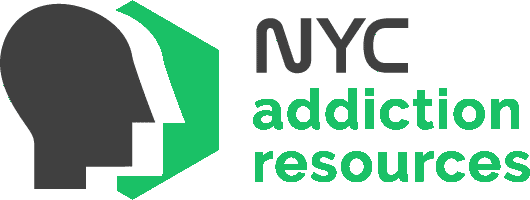What is NY Outpatient Treatment?
NY outpatient treatment is an increasingly popular option in a busy and hectic world. Anyone who is searching for options for can easily feel overwhelmed. the number of choices out there is staggering, let’s face it. The other issue that many of us run into is trying to figure out how treatment is going to fit in our lives. Whether or not we have been to treatment before, we know that addiction will tear our life apart if we let it continue unabated. That is simply not an option. Excepting that addiction treatment is necessary is key.
Outpatient addiction treatment typically consists of meeting with a therapist or counselor at least once a week. some outpatient drug programs consist of individual one on one therapy. Therapy conducted in small groups is much more common, however. The reason being that it is not only more cost effective but patients are able to help one another because they can relate to each other’s struggles and share victories. Fellowship is one of the cornerstones of recovery and an outpatient group can be a great place to develop that fellowship.
Outpatient Addiction Treatment Usually…
- Features individual or group therapy at least once per week.
- Offers camaraderie and emotional support, especially in the case of group therapy.
- Has structures like urine screening in place to help patients remain accountable.
- Is designed for open-ended commitments, but people usually attend for several months to a year or more.
- Can be a less demanding and more cost-effective alternative to more intensive treatment.
Who Goes to a NY Outpatient Treatment Program?
There are three primary types of people who attend NY outpatient treatment. The first type is someone who has already completed addiction treatment at a more intensive level including partial hospitalization and an intensive outpatient program. Those people finish their treatment at the outpatient level of care.
The second is someone who has been to treatment before and has put together long periods of sobriety but had a recent slip. Sometimes a person in those circumstances wants to try outpatient treatment first rather than returning for a full 28 to 30 day stay at an inpatient treatment center. This can be a practical option, but only in certain situations.
For Example
For example, someone who does not need a medical detox and whom has very strong supports in recovery might attend outpatient treatment for several months to a year to get back on track and strengthen their recovery. The third type of person who tries NY outpatient treatment is someone who has not been to any addiction treatment before but is unwilling or unable to commit to a more comprehensive program.
This can be a precarious position. When deciding how much treatment you need it is always best to defer to medical professionals. But ultimately addiction treatment is a personal decision. It is worth considering though perhaps that you really cannot get ‘too much’ help for a problem but it’s easy to get ‘not enough’ help.
3 Types of People Who Attend Outpatient
- A person completing their treatment after more intensive levels of care like inpatient or an Intensive Outpatient Program.
- Someone who has many years of long-term recovery, prior treatment and a strong recovery network, but has had a recent slip.
- People who can’t commit to a complete addiction treatment program yet because of work or family.
How Can Outpatient Addiction Treatment Program Help Me or My Loved One?
We mentioned earlier that there are three types of people who attend outpatient programs typically. Each type of person gets a slightly different benefit from outpatient treatment. Someone who is already completed addiction treatment at the higher levels of care can benefit from outpatient because it keeps them connected to therapeutic services while going back to their everyday routine.
This can be especially helpful in early recovery because it helps prevent relapses or slips. The person with long term recovery and a strong network of sober supports can benefit from outpatient treatment because it refreshes the principles they already know. The final type of person is a little trickier.
The Stay at Home Mom, Workaholic or Skeptic
People who believe they cannot commit to a complete addiction treatment program yet may benefit from outpatient in several ways. If they do not need any type of medical detox and their addiction has not yet progressed to the point where there have consequences. sometimes unfortunately that type of person benefits from outpatient treatment in a different way.
They try outpatient, say once a week or so but it is insufficient to help them stop drinking or using. Things get progressively worse and they begin to have consequences. The best-case scenario for that type of person is that they quickly realize that they aren’t getting the help they need. At that point the person can opt to move to a higher level of care that will give them the support they really need to recover.
Getting Help
You aren’t alone, NYC Addiction Resources has helped hundreds of people just like you. Contact us today at(718) 208-4202. Addiction doesn’t sit still, so we can’t either. Let’s get you or your love one the help they deserve today!


